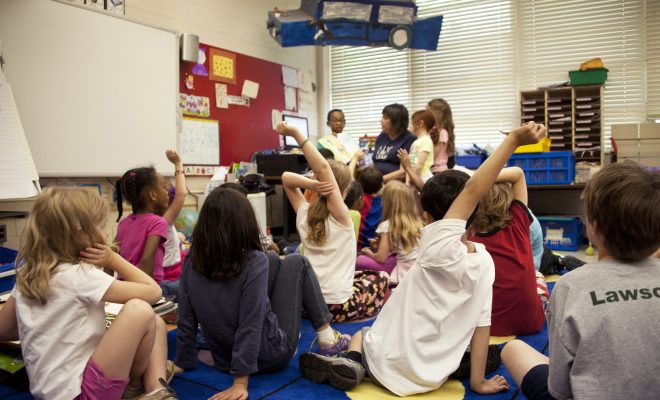Discrimination in the Classroom: What You Need To Know About Students with Learning Disabilities

Some people believe that race and sex are the main forms of discrimination, however as Educators we may witness other forms of judgement. So, what types of discrimination are in the classroom today?
Like other minority groups, children with learning disabilities were segregated and offered minimal to no education. In fact, these children were once placed in asylums, where they remained hidden from the eyes of the world. Children did not receive the help that they needed with intellectual, social, and physical development. With the American Revolution at an end, the United States embraced democracy and the idea of the vastness of human potential. The education of deaf and blind children was an outcome of more inclusive views of human potential, and by the early 19th century, this perspective resulted in the education of individuals with IDD or grave emotional disturbances. A common public sentiment at the time was that students with disabilities would harm other students, demand more attention, cause disruptions, and cause a feeling of awkwardness in the classroom.
After World War II, disciplines such as sociology, psychology, and social work were coming into their own. Along with this growth came a surge in new research and programs directed toward students with disabilities. Parents also worked hard in both schools and the courts to ensure that their children had adequate educational opportunities. Their efforts paid off in 1975 with the passage of Public Law 94–142, the Education for All Handicapped Children Act.
That legislation established five key principles of special education:
1. Zero reject states that no child with disabilities will go without a free public education that is appropriate for them; to disallow them this education is to violate their constitutional rights.
2. Nondiscriminatory education is based on the Fifth and Fourteenth Amendments of the U.S. Constitution. According to this principle, children shall be assessed fairly so that they can be placed in appropriate classes. This principle includes nondiscriminatory education for African American and other racial minority children.
3. Free and Appropriate Public Education (FAPE) builds on the zero-reject principle and states that children shall have an education that is based on an accurate diagnosis of their needs and with programs designed to meet those needs.
4. Least-restrictive environment (LRE) ensures that children with disabilities do not become unnecessarily segregated from their peers who attend general education classes. This means that, as much as reasonably possible, children with disabilities should be educated with those who do not have disabilities to reduce the chances of their feeling isolated.
5. Procedural due process gives power to those who have disabilities so that they can challenge decisions made by the school regarding their education. An impartial tribunal hears these challenges, with counsel and witnesses taking part in the process. School records are also available for reference. The student with disabilities or his or her advocate can appeal decisions with which they disagree.
The Education for All Handicapped Children Act gave states federal funding to educate students with disabilities. But these children were segregated from their nondisabled peers and lost access to much of the equipment and many of the programs found in general education classrooms. In 1991, this law was changed to the Individuals with Disabilities Education Act (IDEA)
According to the federal Office of Special Education and Rehabilitation (OSER), the federal government, through IDEA, serves approximately 6.8 million children and youth with disabilities. Children and youth must exhibit characteristics of one or more of the federally recognized disabilities in order to receive services using IDEA funds.
By knowing and upholding these laws we are able to ensure equally within our classrooms and provide education to students with learning disabilities.






